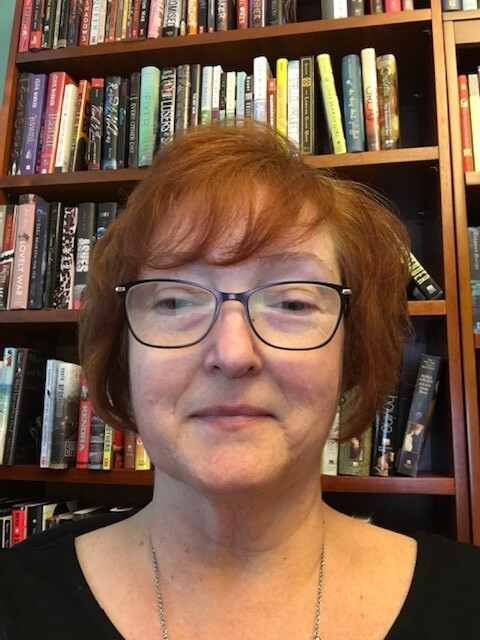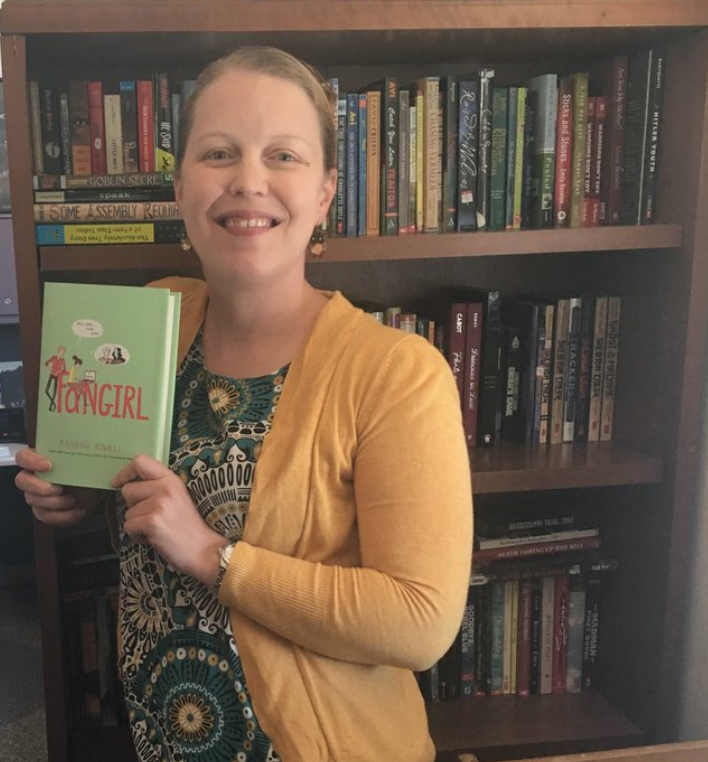In his Netflix special Kid Gorgeous, Comedian John Mulaney argues against colleges and universities asking alumni for donations. Mulaney’s main point, that he has already given enough money through tuition and fees, is driven home by a brief quip: “I paid $120,000 for someone to tell me to go read Jane Austen, and then I didn’t.” In short, college was expensive, and even paying to read the classics isn’t enough motivation to actually go do it.
The merit of the western literary canon, which includes works by Jane Austen, in contemporary ELA classrooms is a common point of debate among educators and researchers alike. How can we reconcile the White Eurocentricity of the canon with the continuing belief that to be well-read and therefore well-educated means being familiar with the classics? I am not going to attempt to address this question in a brief blog post or anywhere else for that matter. What I can do, however, is offer a tool that allows students to talk back to those canonical texts and give them the freedom to embrace Young Adult Literature as a legitimate and important literary genre.
During my time as an 11th and 12th grade ELA teacher, I always made room for student choice in reading, whether that be through sustained silent reading or a complete independent reading unit. The first years of encouraging students to become the readers I knew they could be were challenging. I love books. I wanted my students to love books. I held the somewhat naïve belief that if I surrounded them with enough books, book talked enough books, and always posted “Mrs. Grizzle is reading...” on my classroom door students would, perhaps through osmosis, become readers. I had good intentions, but it took some time for me to realize that those intentions were very much focused on myself. I wanted to be my students’ bookish savior. What I didn’t realize, however, is that my students had very strong opinions about what they had been told to read in school, and over the years, those opinions had turned into quiet resignation, a tacit understanding that teachers would assign books, and those books, save for a quick scan of Sparknotes, would largely go unread.
One year, as I revisited my yearly independent reading unit, I considered how I had and had not allowed my students to have agency and voice in the reading process. I realized that giving students choice may not be enough. I needed to provide them with an outlet, an avenue to voice frustration with the ways they had been taught to approach reading. This realization led me to create one of my favorite assignments to date, the breakup letter to a book.
The concept is simple: students think of a book they have disliked and write a breakup letter to that book. In their letter, students explain why they have decided to part ways with that particular title, and they include a list of offenses the book committed. (See my example below that I used with my students). I broke up with Pride and Prejudice, a decision that would make John Mulaney proud. After students have completed their letters, they talk through their work. The class discussion post-letter is always some of the best work students produce all year. For students, there is something truly satisfying about being able to vent. It's even more special when students discover that some of them have broken up with the same book. There’s a reading kinship that forms from those connections.
It always takes my students by surprise when I tell them that it’s okay to hate a title, that it’s perfectly normal to feel frustrated with assigned reading, and that voicing those frustrations is the first step toward understanding their readerly identities. We can use that disappointment to understand what we don’t like in our reading lives and in turn, understand what we do.
It’s not you. It’s me. And the “it” is that I just can’t stomach you. I’m ashamed to admit it. You are the George Clooney of literature, after all. Elegant and refined with handsome prose. You only become more attractive as you age. But alas, it is a truth not so universally acknowledged that not every well-educated middle-class woman swoons over your Mr. Darcy and your foggy English countryside. I can’t relate to your high teas and your meeting up in perfectly unplowed meadows.
Do you know how many times I’ve tried to read you? It’s completely embarrassing. I have a Master’s degree in English, and I cannot make myself get past page…76??? Do you know what that means? I made it through graduate school, nay through a class dedicated to the British novel, nay to British novels written by females, without reading you. I’ll be honest. I watched your movie. It was just as dull as you. Maybe it’s my unrefined East Texas ear, but I just can’t seem to understand anything you’re saying. Which leads me to another confession: I listened to you on audiobook. I tried to appreciate you while I mopped my kitchen floors and ran my errands. I tried to perch myself on a stationary bike at the gym and convince myself that I was the embodiment of the progressive woman. Here I am everyone, pedaling away while I fill my mind with literary greatness. I made it two miles before I switched to my Beyonce playlist. Now there’s a true poet.
But really, Pride and Prejudice, this isn’t your fault. It’s mine. I should have tried to read you while sitting by a fire and drinking tea and eating crumpets. I should have bought a fancier copy of you, one that had a nice cover so I might actually enjoy holding you in my hands. Truthfully, I thought my obsession with Netflix’s The Crown would motivate me to be more British, but after I binge watched seasons one and two, I just fell back into my old habits of reading, as my grandmother classifies them, novels featuring orphaned and/or mistreated young girls.
So, I’m afraid I'm out. I’m kindly asking you to please consider moving from my built-ins to my cabinets. It’s better if we don’t see each other anymore. It’s clear that we aren’t in this for the long haul, and I’m fairly certain we can’t be friends. I’m sorry if this creates any tension between you and Jane Eyre, whom I love dearly.
Ta ta and goodbye then,
Meg




 RSS Feed
RSS Feed